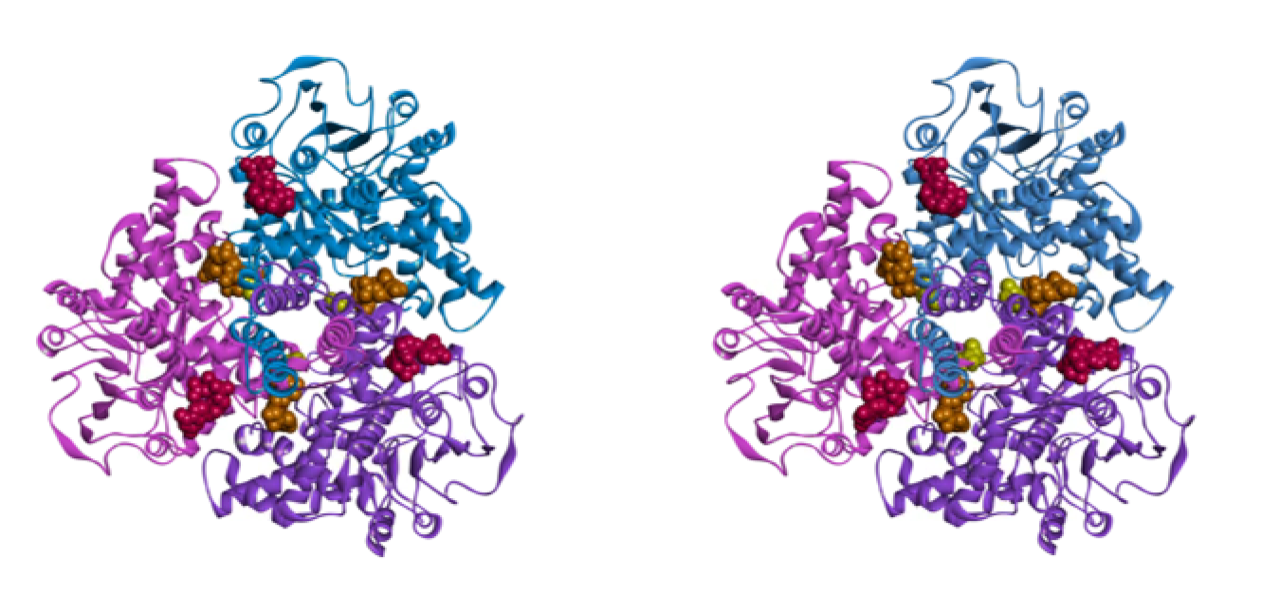Towards precision medicine for HIHA patients
HIHA is the abbreviation of a serious and rare genetic disease called hyperinsulinism-hyperammonemia syndrome. This disease is caused by mutations in the gene encoding for the GDH enzyme. Patients present too high concentrations of insulin and ammonium in their blood and require intensive treatments to prevent harmful hypoglycemia and neurological disorders. Depending on the exact location of the mutation in the GDH sequence, symptoms vary and generic treatments are not sufficient to help patients.
A new mutation characterized
In their recent study published in Human Genomics, researchers from the group of Prof. Pierre Maechler characterized for the first time a specific mutation of the GDH enzyme detected in a patient suffering from HIHA. Comparing the molecular structure and metabolic function of the mutated form with the wild-type enzyme allowed them to better understand the link between this mutation and the high insulin and ammonium blood concentrations.

Molecular structure of the GDH enzyme in wild-type (left) and mutated form (right) in its closed conformation. © Luczkowska et al. (CC BY 4.0)
A slight modification with huge consequences
Researchers discovered that the mutation modifies the enzyme at a tiny but essential place. This change drives different responses according to the organ considered: it forces the liver to produce too much ammonium and the pancreas to secrete insulin not only in the presence of sugar, but also in the presence of proteins.
What’s next?
The team of Prof. Pierre Maechler, in collaboration with other European researchers, is now planning to characterize all known mutations of the GDH enzyme. This should open the way to personalized treatments adapted to each mutation and thus to each patient.
14 Apr 2020